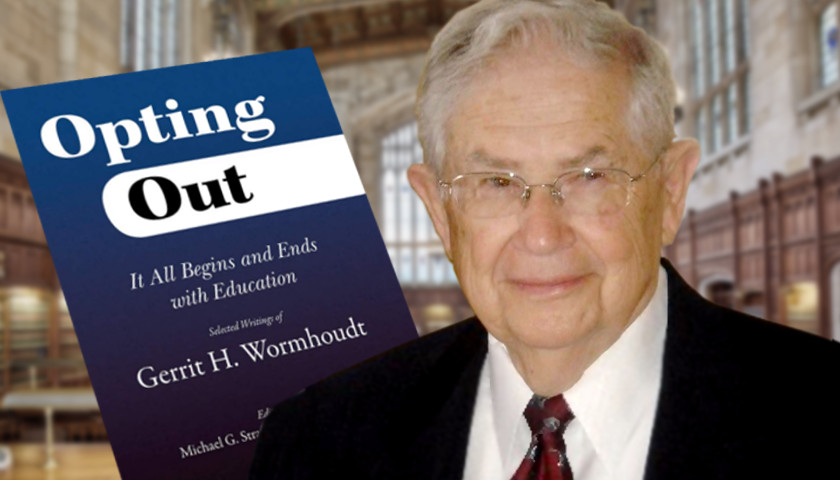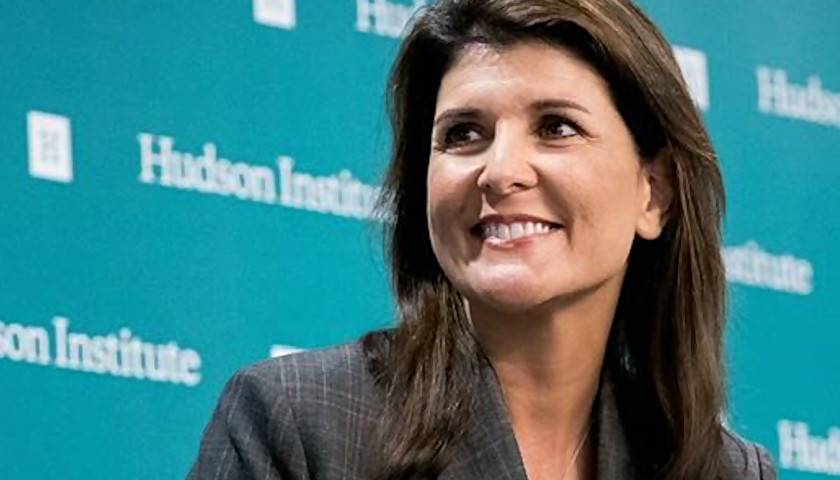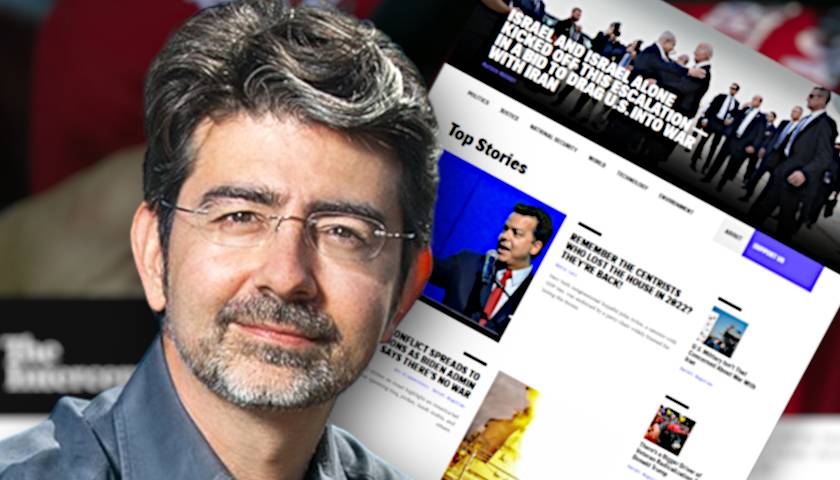by Lawrence Reed
The evolution of the control of educational institutions from entirely private sources to local government schools and then to control by state departments has culminated with the creation of our federal Department of Education. At all levels, government has increasingly exercised bureaucratic power over education in America, from kindergarten through college, and without genuine accountability for results. The consequence has been the growth of an immense educational establishment with an insatiable appetite for political power, for tax dollars, and for control over the shaping of American institutions and the minds and character of its citizens.
– Gerrit H. Wormhoudt in Opting Out: It All Begins and Ends with Education, pp. 27-28.
Personal Responsibility and American Principles
Are you one of those many Americans who wonder why individual liberty and personal character have declined in recent decades? Well, you’ve just read as good an answer as there is. What was once widely regarded as the responsibility of parents is now generally seen as the duty of government, and government is one of the last entities we should ever expect to be good at teaching us either liberty or character.
If America ever ends up in the same historical ash heap as so many other once-free nations have, I think it’s likely that wise observers will conclude something like this:
They started out full of confidence in themselves and in what they could accomplish in freedom. Then, a few generations later, parents in growing numbers decided to turn the education of their children over to the government, which in turn taught those children what a smart thing that was because government cares for them so much.
In time, even the good teachers were clueless about the extent to which they were stewing their classes in subtle state worship. They rarely taught that there was a different perspective because they didn’t know there was one. (And when the blind lead the blind, the final destination is never pretty).
Moreover, the slope was more than a little slippery, for once education became a government duty, almost everything else eventually followed suit. They bankrupted themselves economically and morally in the illusion that life would be better and cheaper if they evaded their personal responsibilities.
Opting Out
More than 20 years ago, in an article on public education titled “Dissatisfaction Guaranteed and No Money Back,” I myself wrote that government schooling creates endless and needless controversy. It erodes the values that underpin a free society at the same time.
So you can imagine my ready approval when I recently came across that quote from the late Gerrit H. Wormhoudt (pictured above). His book, Opting Out, was released by Jameson Books less than two months ago. I recommend it highly, particularly if you are a student of law. It exudes wisdom on every page.
Gerrit’s name may not be familiar to most readers. He wasn’t the sort who sought the limelight, preferring instead to do good work for liberty quietly or behind the scenes. A Kansas native, he practiced law for more than half a century – including before the US Supreme Court and the Courts of Appeals for the 9th and 10th Circuits, federal district courts, and the trial and appellate courts of his home state.
He staunchly defended the Constitution, the rule of law, limited government, and the qualities of personal character that liberty requires. He helped found and guide the Wichita Collegiate School in Kansas and the Institute for Justice in Washington, DC. His influence, considerable in his lifetime, will likely grow with the issuance of this new collection of his essays. He died ten years ago this September 28 at the age of 83.
George Pearson is a good friend and childhood neighbor I’ve known for more than half a century. He knew Gerrit for 43 of those years and spent many a Thursday afternoon with him. George, who thinks of Gerrit as a kind and thoughtful scholar, told me, “Gerrit had a rare combination of intellectual integrity and devotion to truth that drove his scholarly pursuits and at all times guided his written and spoken communications.”
Wormhoudt’s Legacy
Opting Out includes Gerrit’s essays on a range of topics – on law and jurisprudence, the perspicuity of the Founders, regulation, public policy, and more. The title is derived from his belief that Americans must choose alternatives to government management of their lives and children. About a third of the book’s 184 pages zeroes in on education, and those are the sections that especially appealed to me. I am pleased to share with readers these few snippets from Gerrit’s cogent thoughts, with the hope that you’ll want to pick up and read the entire book:
“Simply put, a flourishing number of private schools is absolutely essential if any meaningful value is to be ascribed to the constitutional right of parents to choose for their children that education which most nearly embodies their own ideals and basic beliefs. Without choice in such matters, we are, in Jefferson’s words, not men, but instruments, members, and things.”
“If law, and the words which signify its meaning, have any constancy, then ‘the right to a public education’ is a euphemism for governmental power over the formation of thought and belief, while the extent of individual freedom in education must be gauged as inversely proportional to the amount of property appropriated through public law for the dispensation of government schooling.”
“Not long ago we used to say with satisfaction that a free education was available for every child of school age. Now, the most unsophisticated have become aware that there simply is no such thing as free education. For today, even the lowest-income families, directly or indirectly, pay ever-increasing tax bills for the cost of public education. More important, we have learned that freedom itself has no role to play in government-controlled education.”
“And what is education without freedom? When the foundation of education is built upon compulsion instead of choice, learning easily becomes indoctrination, with the minds and lives of children vulnerable to shaping as instruments of social policy. At its worst, education without freedom breeds resentment and violence, fomenting disrespect for knowledge and values that sustain human dignity and individual responsibility.”
Thank you, Gerrit H. Wormhoudt, for a life devoted to liberty, without which life itself would hardly be worth living.
– – –
Lawrence W. Reed is President Emeritus and Humphreys Family Senior Fellow at the Foundation for Economic Education and author of Real Heroes: Incredible True Stories of Courage, Character, and Conviction and Excuse Me, Professor: Challenging the Myths of Progressivism. Follow on Twitter and Like on Facebook.




